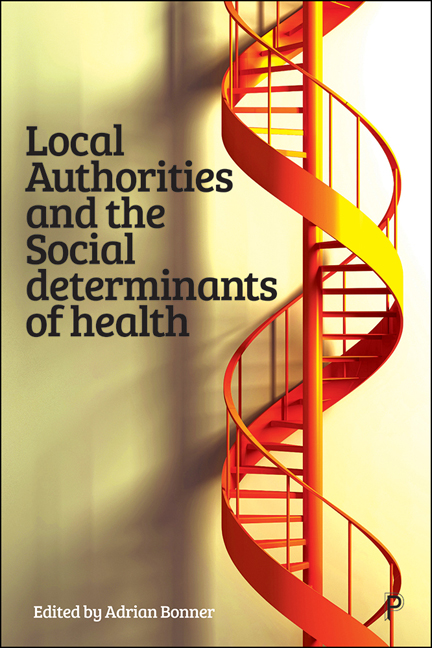Book contents
- Frontmatter
- Dedication
- Contents
- List of Figures, Tables and Boxes
- Notes on Contributors
- Acknowledgements
- Foreword
- Summary
- Introduction: Key Sociopolitical Changes Affecting the Health and Wellbeing of People
- Part I Health, Social Care and Community Wellbeing
- Part II The Role of Local Authorities in Promoting Health and Wellbeing in the Community
- Part III Local Authority Commissioning
- Part IV The Third Sector
- Part V Socio-Economic Political Perspectives
- Conclusion
- Appendix: COVID-19 Timeline
- Index
12 - The Cost of Care if You Don’s Own Your Home
Published online by Cambridge University Press: 25 March 2021
- Frontmatter
- Dedication
- Contents
- List of Figures, Tables and Boxes
- Notes on Contributors
- Acknowledgements
- Foreword
- Summary
- Introduction: Key Sociopolitical Changes Affecting the Health and Wellbeing of People
- Part I Health, Social Care and Community Wellbeing
- Part II The Role of Local Authorities in Promoting Health and Wellbeing in the Community
- Part III Local Authority Commissioning
- Part IV The Third Sector
- Part V Socio-Economic Political Perspectives
- Conclusion
- Appendix: COVID-19 Timeline
- Index
Summary
Introduction
A major theme throughout this book is the range of issues that local councils are faced with at a time of austerity and socio-economic drivers, such as the cost of housing and the demographic changes relating to people living longer. Although advancements in health care have increased longevity, a long life can add more years of disabilities and poor wellbeing. The social gradient described by Marmot (2010) emphasises that those who are most socially deprived have poor health, not only as a result of lack of resources (for example, accommodation, heat and food) but also because of feelings of worthlessness and low self-esteem.
Accommodation in the later years of life can be problematic for some, particularly for those without a supportive family and social network. In Chapter 7, we read that a major concern for councils in the North-East is the increasing health costs of people who, in retirement, move into low-cost housing areas where they can be mortgage free. The aggregation of increasing numbers of people with health needs relating to ageing and poor lifestyle choices is placing significant health costs in those localities already challenged by poor economic growth.
Successful ageing is good for individuals and their communities; however, the cost of care in old age can be profoundly influenced by housing provision. This chapter addresses the complex set of issues when a person does not own their home.
It has been acknowledged and debated for a long time that the social care funding system is not fit for purpose (Blake, 2011), and in its current form is untenable both monetarily and politically (Green, 2019). At the Labour Party conference in 1997, Tony Blair said ‘I don't want [our children] brought up in a country where the only way pensioners can get long-term care is by selling their home’ (Bottery et al, 2018, p 7).The focus of the funding debate continues to be on these individuals who do own their own home and how they make a valuable contribution to maintaining the current system (Blake 2011; Bottery et al, 2018). There is consideration that this system is unfair on individuals who are deemed to have provided for their future (CFCS, 2011; Green, 2019), but little consideration of the implications for individuals who, whether through choice or circumstance, have no assets to use towards the cost of their care (TSA, 2018).
- Type
- Chapter
- Information
- Local Authorities and the Social Determinants of Health , pp. 229 - 240Publisher: Bristol University PressPrint publication year: 2020



